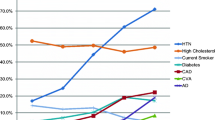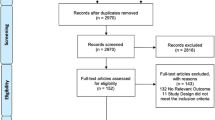Abstract
We aimed to determine the association between the duration of widowhood and cognition decline. We compared the decline observed in widowed people compared with married, single, or separated persons using the scores obtained in the cognitive assessment of memory, learning, and visual exploration by adults and older adults in Mexico. The Mexican Health and Aging Study (MHAS) provides the base for this paper. This study is an analysis of the fourth data wave (2015), except for the independent variable: marital status. Marital status was built longitudinally with information from the four surveys (2001, 2003, 2012, and 2015). The sample comprised 6898 adults aged 50 and over. Cognition was assessed with an adapted Cross-Cultural Cognitive Examination (CCCE). Confounders include sociodemographic characteristics (sex, age, schooling, self-perception of economic status, and whether the individual worked or not), multimorbidity, functionality, support networks, and psychological characteristics. Of the total sample, 4094 (59.3%) were women. The mean age was 70.86 years (SD = 7.4). The baseline of the study is 2001. In 2001, 8.7% (n = 600) were widows or widowers. People widowed by 2001 scored −0.158 points in cognition while divorced participants scored - 0.095 points.

Similar content being viewed by others
Data availability
Database available upon request.
References
Agudelo-Botero, M., Giraldo-Rodríguez, L., Murillo-González, J. C., Mino-León, D., & Cruz-Arenas, E. (2018). Factors associated with occasional and recurrent falls in Mexican community-dwelling older people. PLoS One, 13(2), e0192926. https://doi.org/10.1371/journal.pone.0192926.
Aguilar-Navarro, S. G., Fuentes-Cantú, A., Ávila-Funes, J. A., & García-Mayo, E. J. (2007). Validez y confiabilidad del cuestionario del ENASEM para la depresión en adultos mayores. Salud Pública de México, 49(4), 256–262. https://doi.org/10.1590/S0036-36342007000400005.
Andrew, M. K., & Rockwood, K. (2010). Social vulnerability predicts cognitive decline in a prospective cohort of older Canadians. Alzheimer’s and Dementia, 6(4), 319–325. e1. https://doi.org/10.1016/j.jalz.2009.11.001.
Ardila, A., & Rosselli, M. (2007). Neuropsicología Clínica (Primera ed.). México: Manual Moderno.
Bangerter, L. R., & Waldron, V. R. (2014). Turning points in long distance grandparent–grandchild relationships. Journal of Aging Studies, 29, 88–97. https://doi.org/10.1016/j.jaging.2014.01.004.
Bassuk, S. S., Glass, T. A., & Berkman, L. F. (1999). Social disengagement and incident cognitive decline in community-dwelling elderly persons. Annals of Internal Medicine, 131(3), 165–173.
Biddle, K. D., Jacobs, H. I. L., d'Oleire Uquillas, F., Zide, B. S., Kirn, D. R., Properzi, M. R., et al. (2020). Associations of widowhood and β-amyloid with cognitive decline in cognitively. Unimpaired Older Adults. JAMA Network Open, 3(2), e200121. https://doi.org/10.1001/jamanetworkopen.2020.0121.
Carr, D., House, J. S., Kessler, R. C., Nesse, R. M., Sonnega, J., & Wortman, C. (2000). Marital quality and psychological adjustment to widowhood among older adults: A longitudinal analysis. Journals of Gerontology - Series B Psychological Sciences and Social Sciences, 55, 197–207. https://doi.org/10.1093/geronb/55.4.S197.
Chen, J.-H., Waite, L. J., & Lauderdale, D. S. (2015). Marriage, relationship quality, and sleep among U.S. older adults. Journal of Health and Social Behavior, 56(3), 356–377. https://doi.org/10.1177/0022146515594631.
De Vries, B., Utz, R., Caserta, M., & Lund, D. (2014). Friend and family contact and support in early widowhood. Journals of Gerontology - Series B Psychological Sciences and Social Sciences, 69(1), 75–84. https://doi.org/10.1093/geronb/gbt078.
d'Hyver C, Gutierrez Robledo LM, (2014). Geriatria (Tercera ed). Mexico: manual moderno.
Dorantes-Mendoza, G., Ávila-Funes, J. A., Mejía-Arango, S., & Gutiérrez-Robledo, L. M. (2007). Factores asociados con la dependencia funcional en los adultos mayores: Un análisis secundario del Estudio Nacional sobre Salud y Envejecimiento en México, 2001. Revista Panamericana de Salud Pública, 22(1), 1–11. https://doi.org/10.1590/S1020-49892007000600001.
Gibson, A. K., & Richardson, V. E. (2017). Living alone with cognitive impairment. American Journal of Alzheimer's Disease and Other Dementias, 32(1), 56–62. https://doi.org/10.1177/1533317516673154.
Glosser, G., Wolfe, N., Albert, M. L., Lavine, L., Steele, J. C., Calne, D. B., & Schoenberg, B. S. (1993). Cross-cultural cognitive examination: Validation of a dementia screening instrument for Neuroepidemiological research. Journal of the American Geriatrics Society, 41(9), 931–939. https://doi.org/10.1111/j.1532-5415.1993.tb06758.x.
Holmes, T. H., & Rahe, R. H. (1967). The social readjustment rating scale. Journal of Psychosomatic Research, 11, 213–218. https://doi.org/10.1016/0022-3999(67)90010-4.
Instituto Nacional de Geografía y Estadística (INEGI). (2017). Mujeres y hombres en México 2016. México. Retrieved from http://cedoc.inmujeres.gob.mx/documentos_download/MHM_2016.pdf
Jeon, G. S., Jang, S. N., Kim, D. S., & Cho, S. I. (2013). Widowhood and depressive symptoms among korean elders: The role of social ties. Journals of Gerontology - Series B Psychological Sciences and Social Sciences, 68(6), 963–973. https://doi.org/10.1093/geronb/gbt084.
Johnson, N. J., Backlund, E., Sorlie, P. D., & Loveless, C. A. (2000). Marital status and mortality: The national longitudinal mortality study. Annals of Epidemiology, 10(4), 224–238.
Jones, I. R., & Higgs, P. F. (2010). The natural, the normal and the normative: Contested terrains in ageing and old age. Social Science and Medicine, 71(8), 1513–1519. https://doi.org/10.1016/j.socscimed.2010.07.022.
Katz, S., Downs, T. D., Cash, H. R., & Grotz, R. C. (1970). Progress in development of the index of ADL. The Gerontologist, 10(1), 20–30.
Lee, Y., Chi, I., & Palinkas, A. L. (2019). Widowhood, leisure activity engagement, and cognitive function among older adults. Aging & Mental Health, 23(6), 771–780. https://doi.org/10.1080/13607863.2018.1450837.
Liu, H., Zhang, Y., Burgard, S. A., & Needham, B. L. (2019). Marital status and cognitive impairment in the United States: Evidence from the National Health and aging trends study. Annals of Epidemiology, 38, 28-34.e2. https://doi.org/10.1016/j.annepidem.2019.08.007.
Lyu, J., Min, J., & Kim, G. (2019). Trajectories of cognitive decline by widowhood status among Korean older adults. International Journal of Geriatric Psychiatry, 34(11), 1582–1589. https://doi.org/10.1002/gps.5168.
Mejía-Arango, S., Miguel-Jaimes, A., Villa, A., Ruiz-Arregui, L., & Gutiérrez-Robledo, L. M. (2007). Deterioro cognoscitivo y factores asociados en adultos mayores en México. Salud Publica de Mexico, 49(S4), 475–481. https://doi.org/10.1590/S0036-36342007001000006.
Mejía-Arango, S., Wong, R., & Michaels-Obregón, A. (2015). Normative and standardized data for cognitive measures in the Mexican health and aging study. Salud Publica de Mexico, 57, s90–s96.
Monserud, M. A., & Wong, R. (2015). Depressive symptoms among older Mexicans. Research on Aging, 37(8), 856–886.
Schaan, B. (2013). Widowhood and depression among older europeans-the role of gender, caregiving, marital quality, and regional context. Journals of Gerontology - Series B Psychological Sciences and Social Sciences, 68(3), 431–442. https://doi.org/10.1093/geronb/gbt015.
Seeman, T. E. (1996). Social ties and health: The benefits of social integration. Annals of Epidemiology, 6(5), 442–451. https://doi.org/10.1016/S1047-2797(96)00095-6.
Segura Cardona, A., Garzón Duque, M., Cardona Arango, D., & Segura Cardona, A. (2016). Riesgo de deterioro cognitivo en personas mayores de las subregiones de Antioquia, Colombia. Revista Brasileira de Estudos de População, 33(3), 613–628.
Torres, D. I. R. (2011). El envejecimiento humano activo y saludable, un reto para el anciano, la familia, la sociedad. 30, 354-359.
Tous, J. M., & Navarro, J. (1997). Las diferencias individuales en el proceso de envejecimiento humano., 14.
Utz, R. L., Carr, D., Nesse, R., & Wortman, C. B. (2002). The effect of widowhood on older Adults' social participation. The Gerontologist, 42(4), 522–533. https://doi.org/10.1093/geront/42.4.522.
Utz, R. L., Caserta, M., & Lund, D. (2012). Grief, depressive symptoms, and physical health among recently bereaved spouses. Gerontologist, 52(4), 460–471. https://doi.org/10.1093/geront/gnr110.
Van Gelder, B. M., Tijhuis, M., Kalmijn, S., Giampaoli, S., Nissinen, A., & Kromhout, D. (2006). Marital status and living situation during a 5-year period are associated with a subsequent 10-year cognitive decline in older men: The FINE study. Journals of Gerontology - Series B Psychological Sciences and Social Sciences, 61(4), 213–219. https://doi.org/10.1093/geronb/61.4.P213.
Waldron, I. (1996). Marriage protection and marriage selection--prospective evidence for reciprocal effects of marital status and health. Science, 43(I), 113–123.
Whitley, E., Deary, I. J., Ritchie, S. J., Batty, G. D., Kumari, M., & Benzeval, M. (2016). Variations in cognitive abilities across the life course: Cross-sectional evidence from understanding society : The UK household longitudinal study. Intelligence, 59, 39–50. https://doi.org/10.1016/j.intell.2016.07.001.
Wong, R., Michaels-Obregón, A., Palloni, A., Gutiérrez-Robledo, L. M., González-González, C., López-Ortega, M., et al. (2015). Progression of aging in Mexico: The Mexican health and aging study (MHAS) 2012. Salud Publica de Mexico, 57(S1), S79–S89.
Wong, R., Michaels-Obregon, A., & Palloni, A. (2017). Cohort profile: The Mexican health and aging study (MHAS). International Journal of Epidemiology, 46(2), e2–e2. https://doi.org/10.1093/ije/dyu263.
Wörn, J., Comijs, H., & Aartsen, M. (2020). Spousal loss and change in cognitive functioning: An examination of temporal patterns and gender differences. The Journals of Gerontology. Series B, Psychological Sciences and Social Sciences, 75(1), 195–206. https://doi.org/10.1093/geronb/gby104.
Zunzunegui, M.-V., Alvarado, B. E., Del Ser, T., & Otero, A. (2003). Social networks, social integration, and social engagement determine cognitive decline in community-dwelling Spanish older adults. The Journals of Gerontology Series B, Psychological Sciences and Social Sciences, 58(2), S93–S100.
Acknowledgments
The MHAS (Mexican Health and Aging Study) is partly sponsored by the National Institutes of Health/National Institute on Aging (grant number NIH R01AG018016) in the United States and the Instituto Nacional de Estadística y Geografía (INEGI) in Mexico. Data files and documentation are of public use and available at www.MHASweb.org.
Funding
The Mexican Health and Aging Study was supported in part by the National Institutes of Health/National Institute on Aging (R01AG018016, R Wong, PI).
Author information
Authors and Affiliations
Contributions
All authors gave final approval of the version to be published and agreed to be accountable for all aspects of the work in ensuring that questions related to the accuracy or integrity of any part of the work were appropriately investigated and resolved.
Conceptualization: MBG and CGP.
Methodology: MBG, RRA, MLO, SSG, CGP.
Validation: RRA, CGP.
Formal Analysis: MBG, RRA.
Data Curation: MBG, RRA.
Writing – Original Draft Preparation: MBG, RRA, MLO, SSG, CGP.
Writing – Review & Editing: MBG, RRA, MLO, SSG, CGP.
Supervision: CGP.
Corresponding author
Ethics declarations
Conflicts of Interest/Competing Interests
Authors declare no competing interests.
Additional information
Publisher’s Note
Springer Nature remains neutral with regard to jurisdictional claims in published maps and institutional affiliations.
Rights and permissions
About this article
Cite this article
Barragán-García, M., Ramírez-Aldana, R., López-Ortega, M. et al. Widowhood Status and Cognitive Function in Community-Dwelling Older Adults from the Mexican Health and Aging Study (MHAS). Population Ageing 15, 605–622 (2022). https://doi.org/10.1007/s12062-020-09322-2
Received:
Accepted:
Published:
Issue Date:
DOI: https://doi.org/10.1007/s12062-020-09322-2




